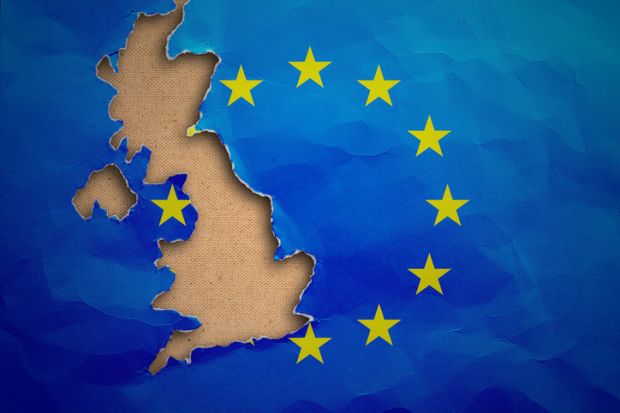UK science has lost out on hundreds of millions of pounds in European research funds as a result of Brexit uncertainty, a Royal Society report claims.
The analysis, published on 16 October, reveals that the UK secured just 11 per cent of Horizon 2020 grants in 2018 (€1.06 billion, or £920 million in total), compared with 16 per cent of funds signed for in 2015 (€1.49 billion, £1.29 billion) – representing a fall of almost a third, or €430 million (£372 million).
The study indicates that there was almost a 40 per cent drop in the number of UK applications to Horizon 2020 from pre-referendum levels, down from 19,127 in 2015 to 11,746 in 2018.
Sir Venki Ramakrishnan, president of the Royal Society, said the fall in European Union grant income was “because of the uncertainty around Brexit”.
“The potential paralysis of a no-deal Brexit and the current state of chaos are hurting UK science, and that is hurting the national interest,” said Sir Venki.
The number of key researchers coming to the UK as part of the EU’s Marie Skłodowska-Curie fellowships has fallen by a third, with only 336 taking up posts in the UK in 2018 under the scheme, compared with 515 in 2018, the report adds.
“The UK has therefore missed out on attracting 179 internationally excellent scientists to its institutions through this scheme alone in 2018,” it explains, adding that “our international competitors are benefitting”.
Sir Venki, a 2009 Nobel laureate in chemistry, commented that the “dramatic drop in the number of leading researchers who want to come to the UK” was also clearly linked to the ongoing uncertainty over the UK’s involvement in the EU’s flagship research and innovation funding scheme.
“People do not want to gamble with their careers when they have no sense of whether the UK will be willing and able to maintain its global scientific leadership,” he said.
The report details that the UK has traditionally performed “head and shoulders above all other EU nations” in attracting individuals via the Marie Skłodowska-Curie programme.
“However since the referendum, this has seen a significant dent,” it adds.
The study also dismissed concerns that UK applications to Horizon 2020 had been turned down because of Brexit, stating that “the success rate for UK applications has remained stable” between 2015 and 2018.
“The EU aren’t punishing us – when we apply we are successful,” it concludes.
The report calls for a deal for science that allows “UK and EU scientists [to] continue to work in each other’s countries with minimal friction, bureaucracy and cost” and “keeps access to money and networks that support the UK to work with scientists around the world”.
It also calls on the government to “ensure the UK has full association with the next EU research and innovation funding programme, Horizon Europe”.
Register to continue
Why register?
- Registration is free and only takes a moment
- Once registered, you can read 3 articles a month
- Sign up for our newsletter
Subscribe
Or subscribe for unlimited access to:
- Unlimited access to news, views, insights & reviews
- Digital editions
- Digital access to THE’s university and college rankings analysis
Already registered or a current subscriber? Login








